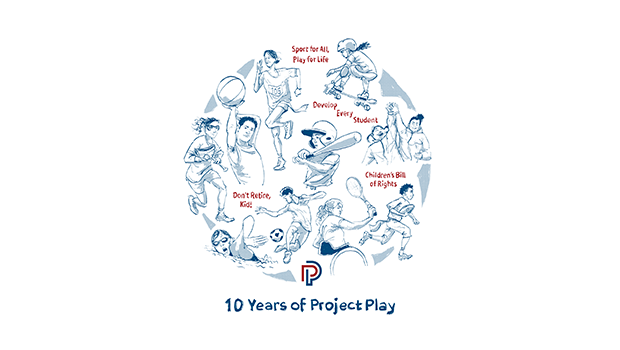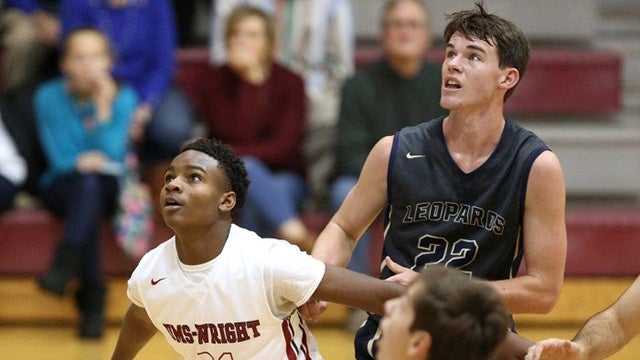It’s been a quarter-century since the release of Hoop Dreams, the sports documentary that launched the genre with its revealing portrait of two African American young basketball players (William Gates and Arthur Agee) trying to improve their lives. In many ways, Hoop Dreams was the first reality show.
Originally intended to be a 30-minute short film, Hoop Dreams filmmakers shot 250 hours of footage for a three-hour film spanning six years in the lives of Gates and Agee as they chased NBA dreams that neither reached. At a young age, Gates was viewed as the second coming of NBA great Isiah Thomas – they were both inner-city Chicago kids who played for the same coach at a white, suburban Chicago private high school – but Gates’ career was derailed by injury. Agee, also from the inner city, played at the private school as well but was forced to leave early in his career when the coach determined his basketball skills weren’t worth keeping.
The movie is “not only a documentary,” film critic Roger Ebert wrote in 1994. “It is also poetry and prose, muckraking and expose, journalism and polemic. It is one of the great moviegoing experiences of my lifetime. … Hoop Dreams contains more actual information about life as it is lived in poor black city neighborhoods than any other film I have ever seen.”
On Sept. 17 at the Project Play Summit in Detroit, the Aspen Institute will host a panel discussion, ”Hoop Dreams at 25 – Is Youth Basketball Any Wiser Now?” The panel features former NBA star Chris Webber and Peter Gilbert, one of the movie’s filmmakers, and examines what has changed – and still needs to change – for the game to better serve kids.
Scheduling conflicts will prevent Gates and Agee from appearing at the Project Play Summit. Gates now works at a prison in Texas; Agee is a motivational speaker who still lives in the West Side of Chicago. They recently spoke in separate interviews with Jon Solomon, editorial director of the Aspen Institute Sports & Society Program, about the impact of the movie 25 years later and the current state of youth basketball.
Jon Solomon: Does it feel like it’s been 25 years since the movie came out?
William Gates: It really doesn’t feel like it’s been that long. The crazy aspect of it is, it still resonates. That freaks me out. I think it’s great because the message is still strong, but it’s bad because the message is still strong and we haven’t advanced as much as we’d like to. I think Hoop Dreams opened minds and hearts and hit a sympathy nerve, but like with all things, if there was never a plan to change, it still hovers there.
When Hoop Dreams first came out, everybody was fired up and said, “We really need to address how high school and college athletes are being treated and this meat market (for how basketball recruits are identified and treated). I can still hear (basketball recruiting analyst) Bob Gibbons in the movie saying, “I’m serving up meat and trying to serve it up nice and neat.” Now the high school coaches have been removed from having control and the shoe companies came in and were more impactful. They run basketball as a whole now.
Solomon: What’s different about youth basketball today compared to 25 years ago?
Arthur Agee: They’ve taken it from the outdoors and put it inside gyms now. You lose something. There’s that community aspect where anyone in the neighborhood can walk on the court, and he’s 35 years old and really playing hard, but you don’t understand why he’s playing hard because of the way he played growing up. You go inside a gym, now everything is for show. Forget about the win. I want to cross these guys up and get an “oooh” and go directly on Twitter.
We never played in a sanctioned AAU tournament (in the 1980s and ‘90s). We had neighborhood teams. I played against Chris Webber. That was just two neighborhood coaches who wanted to play each other and let’s compete. One thing I do like about AAU is it gives these kids something better than they’re used to. Some kids never get to travel and go anywhere. But what’s lost is the fundamentals of the game. Kids are 12 and 13 playing with 15- and 16-year-olds. No, play with your age group. Some of the AAU coaches, it’s all about wins. OK, but is the kid learning anything?
Solomon: William, your kids have played basketball, including in college, and you coach AAU. You faced a lot of pressure as a player, especially after you injured your knee. How did your experiences shape how you coach other kids?
Gates: In my program, we start from fifth grade until you quit. We don’t lose you. We keep you. We want to see you develop, because to me, basketball is our classroom. We have to teach these kids how to tie a tie, what fork to pick up, how to teach them etiquette and culture.
Curtis (Gates’ deceased brother) used to tell me all the time: “Use basketball, don’t let it use you.” I didn’t understand it at 14 or 15. But as I’ve got older, I understand it more and more. Parents (of kids on his team) say they don’t know what to say to college coaches. I say, “Yeah, you do. You know what’s best for your family. You’ve been raising this child your whole life. If you know you have a kid who doesn’t like to be yelled at, you may not want to play for a coach who yells a lot. If you value education, then find a school that values education.”
On my AAU team, a lot of times a parent will say, “My son is going through this. Can you talk to him?” I’m more than happy to do that, but when I’m done, I’ll call the parent and tell them what’s going on. I don’t want to take that responsibility away from them.
Solomon: Arthur, what’s your 11-year-old son’s basketball experience been like?
Agee: He was playing AAU. It just cost too much money. They wanted $1,000 to $1,300. And the thing is, that’s just the entry fee on the team. That’s not the travel. What if mom and dad can’t go? Now, you have to arrange for them to go with other parents and money to eat. Hell, no. That’s just way too much. My fiancé and I, we’re trying to buy a home. It works for my son playing locally around Chicago. He’s not going to Orlando.
I want my son to enjoy the game, have fun with it. My basketball career was wonderful, and I feel so sorry for kids who are under so much stress if they don’t go to practice. They’re doing it for the parents. They’re playing too many games now. It’s like a job these days for kids. You can burn a kid out. You shouldn’t be playing five or six games a weekend. Let your body heal back up. Let your energy be right.
Solomon: William, there’s a scene in Hoop Dreams where your St. Joseph’s High School coach, Gene Pingatore, asks you what you’ll study in college and you say, “I’m going into communications, so when you come asking for donations, I’ll know the right way to turn you down.” The perception was he was using players. Was that how you viewed him?
Gates: People thought Coach and I fell out and didn’t get along. My son played for Coach. I went to his funeral recently. It was heartbreaking when I heard he had passed. To me, every coach has their personal flaws, but I was closer to him than (Gates’ college coach at Marquette University) Kevin O’Neill. Yeah, (Pingatore) was an old-school coach and said some outlandish things. But there aren’t too many players who played for the guy who didn’t walk away and say four years later, “I’m a better person.”
Solomon: Any regrets about making Hoop Dreams?
Agee: No, I use it to teach my son. He’s obsessed with Hoop Dreams. He probably watches twice a week. He picks out his favorite part and says, “Dad, what were you thinking about when you had to leave St. Joseph’s? Do you think (Pingatore) didn’t believe in you?” I said, “Yeah, I didn’t show good promise as a ballplayer like William Gates did. Had my skills developed a little earlier, I probably would have stayed there. But you can see that didn’t stop me from growing my game.”
Solomon: William, there’s a moment in the movie that beautifully characterizes the hopes and, typically, letdowns of chasing the NBA dream. You say, “That’s why when somebody says, ‘When you get to the NBA don’t forget about me,’ and all that stuff, I should say, ‘Well, if I don’t make it, don’t forget about me.’” Twenty-five years later, have people forgotten about you?
Gates: That’s been a blessing, honestly. Here we are 25 years later and people still recognize me. I’ll be coaching and people will recognize me and take a picture with their kid. That always brings a smile to my face. It’s a reminder it’s still just a game and that Arthur and I haven’t been forgotten. There are so many athletes who have been.
But it is bittersweet. Hoop Dreams has brought a tremendous amount of blessings in my life and I would never take it away. But it’s also a reminder that my dream didn’t happen. I think sometimes people think they’re watching a fictional movie. Man, that’s my life. You’re seeing the results of what happened in my life. Every time I watch, I know my knee is about to give out my junior year. It’s a reminder for me of what could have been. But it’s more sweet than bitter.
Register for the Project Play Summit on Sept. 17-18 in Detroit at as.pn/2019ppsummit. Speakers will include Chris Webber, Valorie Kondos Field, David Brooks and Tim Shriver. See the Summit agenda for more information. Learn about Project Play at ProjectPlay.us.

